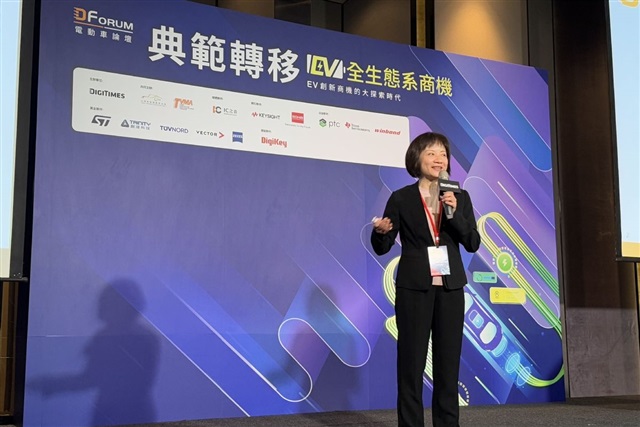
The global EV market is rapidly expanding, particularly in China, driven by affordable models and government support. While Europe and the US face slower growth due to various factors, China’s dominance continues to increase. Taiwan’s automotive industry, leveraging its robust ICT sector, focuses on smart vehicle technologies to capitalize on this growing market.
At the “D Forum 2024: Paradigm Shift, Opportunities in the EV Ecosystem” forum hosted by DIGITIMES on June 6, 2024, industry experts discussed the evolving automotive landscape.
According to Jessie Lin, senior analyst & research manager at DIGITIMES Research, with the backlog of orders now cleared and limited interest rate cuts in the US and Europe, the cost of purchasing vehicles remains high. The global automotive market is estimated to reach a volume of 90.9 million units in 2024, reflecting a year-over-year growth rate of only 2%. In contrast, the EV market is expected to grow to 17.19 million units in 2024, achieving an impressive year-over-year growth rate of 23.8%.
China, Europe, and the US dominate the automotive market, accounting for 91% of the share, with China taking a significant lead. Chinese automakers are introducing affordable models, creating a substantial substitution effect against traditional gasoline vehicles. The country’s annual EV sales are expected to surpass 11 million units, reflecting a remarkable 32.7% increase.
However, Europe and the US are projected to experience much slower growth in the EV sector, with anticipated rates of just 2% and 7.7% respectively, influenced by the sluggish transition from traditional automakers, dwindling EV subsidies, and inadequate charging infrastructure.
China’s emergence as the world’s largest automobile exporter since 2023, overtaking Japan, has been driven largely by exports to Europe. The impact varies significantly despite tariffs imposed by the US and the EU. The US tariffs have limited effects due to low import volumes, while EU tariffs, primarily on BEVs, have prompted China to increase exports of PHEVs. This strategic shift, alongside China’s cost advantages, maintains its competitiveness in foreign markets even with a 30% tariff.
In response, Chinese automotive giants like BYD, Chery Automobile, and Leapmotor Technology are accelerating plans to establish manufacturing plants in Europe, aiming to mitigate the impact of tariffs.
Smart tech integration drives Taiwan’s automotive growth
In Taiwan, the automotive industry is strengthened by its ICT sectors. While the semiconductor industry has traditionally been strong, its automotive segment is now seeing significant growth, noted Sam Shen, secretary-general of the Taiwan Advanced Automotive Technology Development Association (TADA). Taiwan-based major ODMs report increased revenue shares from their automotive divisions, marking a strategic evolution highlighting an ongoing development rather than a mere passing trend.
Shen emphasized that the concurrent growth of electric and gasoline vehicles presents an opportunity for Taiwan to capitalize on its industrial expertise in smart vehicle technologies. Taiwanese manufacturers are concentrating on advancing smart cockpits with integrated platforms, multi-sensory interaction, immersive entertainment, and personalized settings. He noted that the automotive industry is at a crucial juncture, offering Taiwan a unique chance to use its technological strength in developing comprehensive vehicle systems, an area full of potential for exploration and innovation.
Source: DIGITIMES Research, December 2024
